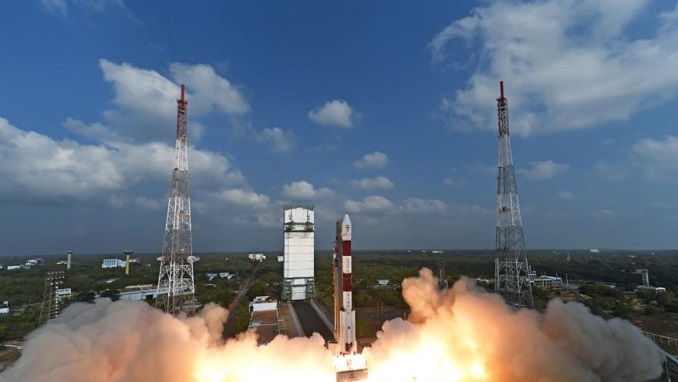The Briz-M booster has put Russian communications satellites Express-80 and Express-103 on the designated orbit at an altitude of 54,900 kilometers, the press service of Russia’s state space corporation Roscosmos said on Friday.
“The spacecraft separated from the booster unit. The satellites have been put on the designated orbit,” the press service said.
The Proton-M carrier rocket was launched from the Baikonur space center at 00:25 Moscow time on July 31. The booster with the spacecraft separated from the carrier rocket at 00:35 Moscow time, TASS reported.
It was this year’s only Proton launch. The satellites were launched in the interests of Russian satellite operator Space Communications.
The Proton-M was initially scheduled to be launched on July 30 but the launch was postponed for one day for an additional check. A source in the Russian space industry told TASS on Wednesday the launch had been postponed due to problems with a device made by the company MOKB Mars (part of Rosatom civilian nuclear power corporation) responsible for the safe operation of the engine of the Briz-M booster.
The Express-80 and Express-103 telecom satellites are expected to move eventually to their geo-stationary orbits, igniting their own engines. According to the Roscosmos data, the term for completing the satellite’s delivery into the designated orbit is no more than 152 days for the Express-80 and no more than 160 days for the Express-103.
The Express-80 and Express-103 satellites were built on the order from the Russian Satellite Communications Company and are based on the standardized Express-1000 medium-class platform developed by the Reshetnev Information Satellite Systems Company.
The satellites are designed to provide fixed and mobile communications, digital television and radio broadcasting services and high-speed access to the Internet and also to transmit data on the territory of Russia and the Commonwealth of Independent States (CIS) in the C-, Ku-and L-bands. The payload will include 38 (for the Express-80) and 37 (for the Express-103) basic transponders. The satellites will have an active service life of 15 years.












